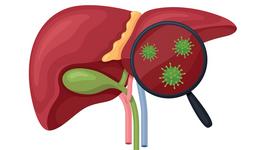Gene Editing Rescues Disease Phenotypes in Friedreich’s Ataxia iPSC-Derived Neurons
CMN Intelligence - The World’s Most Comprehensive Intelligence Platform for CRISPR-Genomic Medicine and Gene-Editing Clinical Development
Providing market intelligence, data infrastructure, analytics, and reporting services for the global gene-editing sector. Read more...
Friedreich's ataxia (FRDA) is an autosomal recessive disease that arises through loss-of-function mutations in the FXN gene, which encodes the mitochondrial protein frataxin. Frataxin plays roles in several key processes in iron metabolism, antioxidant protection, and energy production in the mitochondria.
With no effective treatments, individuals with FRDA experience progressive motor skill loss, and degeneration of muscle tissue and sensory nerve fibres throughout the body. This eventually results in an inability to walk, and most FRDA patients die before the age of 40.
The first intron of FXN bears a GAA trinucleotide repeat, which is usually between five and 30 repeats long in healthy people. Having a hyperexpansion of these repeats, however, leads to loss of frataxin production, which results in the accumulation of iron in the mitochondria and subsequent oxidative stress. FRDA patients typically harbour between 44 and 1700 repeats.
Professor Stephanie Cherqui at UCSD’s School of Medicine has spent much of her career dedicated to developing a novel therapy for FRDA, which you can read about in a recent interview with CRISPR Medicine News here.
In a new study published yesterday in Frontiers in Pharmacology, her team reports that CRISPR-Cas9-mediated excision of the GAA repeats in FRDA patient-derived iPSCs led to rescue of mitochondrial defects and apoptotic phenotypes. These results build upon previous studies carried out by the same team, which demonstrated that autologous stem cell transplantation using CRISPR-Cas9-mediated excision of the GAA repeats in patients’ CD34+ HSPCs led to increased FXN expression and improved mitochondrial functions.
Read the article in Frontiers in Pharmacology here.
To get more CRISPR Medicine News delivered to your inbox, sign up to the free weekly CMN Newsletter here.
Tags
CLINICAL TRIALS
Sponsors:
Base Therapeutics (Shanghai) Co., Ltd.
Sponsors:
Base Therapeutics (Shanghai) Co., Ltd.







